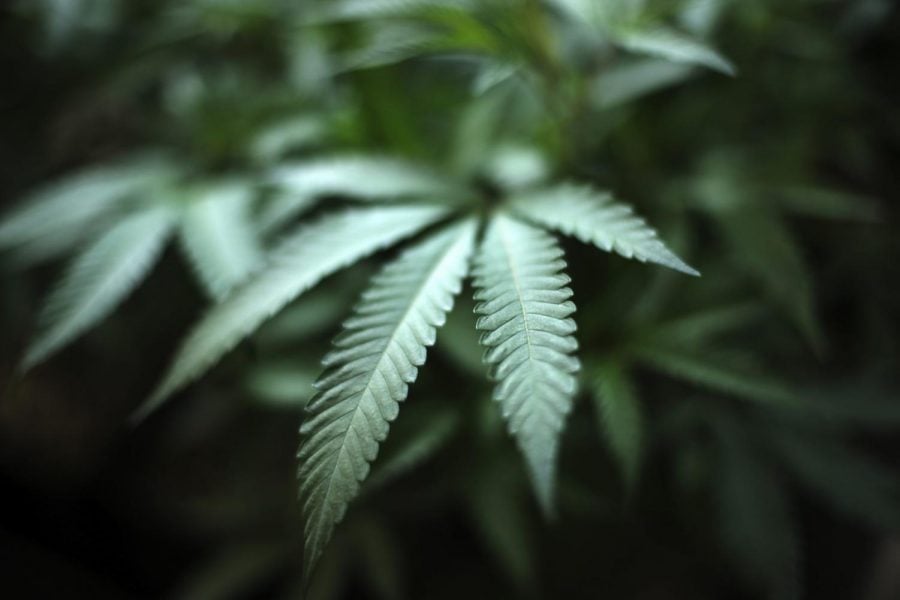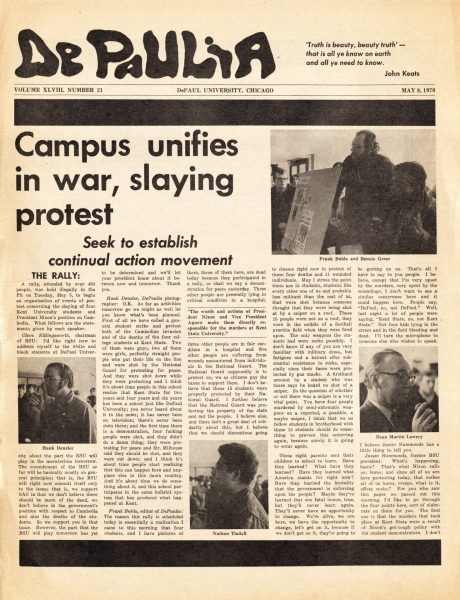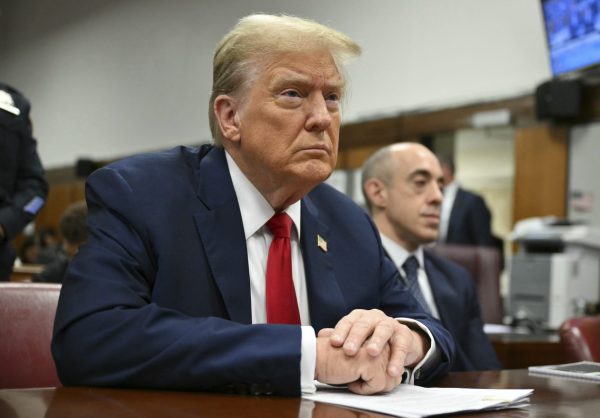Upcoming marijuana legalization won’t affect DePaul
In this Aug. 15, 2019, file photo, marijuana grows at an indoor cannabis farm in Gardena, Calif. The U.S. House of Representatives passed a bill Wednesday, Sept. 25, 2019, that would grant legal marijuana businesses access to banking, a measure that would clear up a longstanding headache for the industry.
To be blunt, it’s high time we figure out what’s really going on with legal weed in Illinois.
Recreational marijuana will be legal in Illinois as of January 2020, per a bill signed into law by Gov. J.B. Pritzker on June 25. Illinois will be the 11th state in the US to legalize recreational marijuana. Consumption of the plant will be legal for all citizens in the state, or at least most. There are a few exceptions to this newfound freedom. For starters, you probably can’t smoke.
Although it will be a whole lot easier, and legal, to purchase marijuana in Illinois as of Jan. 1, DePaul has some rules that students need to be aware of.
“The new law will not change the fact that DePaul is a smoke-free and drug-free campus,” said DePaul spokesperson Carol Hughes.
Students, as well as all faculty and staff, will be held to the same rules as always when it comes to marijuana. Because the school receives federal funds, DePaul is required to uphold laws, such as the Safe and Drug Free Schools and Communities Act and the Drug Free Workplace Act. These laws will continue to prohibit cannabis in the workplace and on campus, Hughes said. Basically, not much is going to change at DePaul when it comes to marijuana. The rest of the state, however, is about to get a whole lot louder.
An anonymous freshman at DePaul, 18, is very excited about the new legislation.
“I’ve been smoking since 15 or 16; I started my summer going into sophomore year,” he said. “I probably smoke everyday.”
While he is aware he can’t legally smoke until he is 21, and even then needs to take his plant off campus, he is excited for the societal change this law will bring about.
“They say they’re going to let more people out who got convicted for petty crimes,” he said. “It’s going to be a lot less people getting finessed for petty stuff because they can just go to the dispensary.”
One of the biggest components of this law is the second chance it gives to those arrested on non-violent charges relating to marijuana. Arrests for marijuana possession under 30 grams will be automatically expunged, and individuals with arrests for possession of up to 500 grams can take their cases to court to seek expungement. Pritzker has called this legislature “an important and overdue change.”
He continued, “It’s the right thing to do.” He claims this bill will give hundreds of thousands of people whose lives have been affected by a marijuanna arrest a chance at a better life, including a chance to gain jobs and housing.
There are a few more restrictions on the future legality of marijuana that should be noted. For starters, those with a medical marijuana license will be the only citizens allowed to grow their own weed. Second, lighting up in public will stay a big no-no. Those of legal smoking age will only be allowed to smoke in private residences and in some dispensaries if the local jurisdiction allows. The sale of marijuana will start through existing dispensaries, with new licences being processed beginning in March and issued in May 2020.
“All I know,” the DePaul student said, “is it’s about to get a lot more chill.”












Maryjane Calyx • Sep 30, 2019 at 10:54 am
According to the U.S. government: Alcohol kills 88,000 Americans per year. Perhaps booze is the substance to be most concerned with.